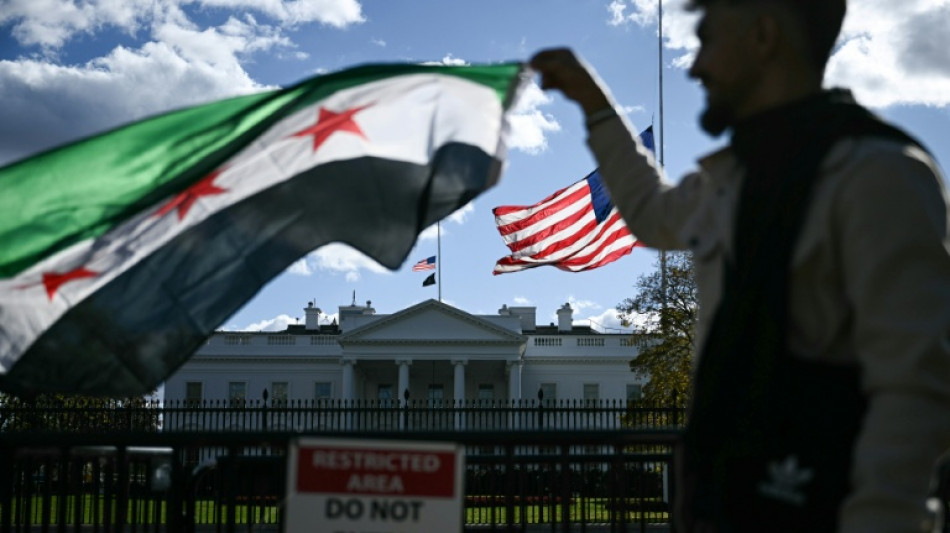

For many Syrians, Sharaa's US visit marks new beginning
On the streets of Damascus on Tuesday, Syrians viewed their leader's visit to Washington as a shift towards the West that could pave the way to reviving the country's war-battered economy.
On Monday, Donald Trump received Ahmed al-Sharaa, a first for a Syrian head of state since independence in 1946 and a crowning achievement for the former jihadist, whom Washington once sought to arrest in return for a $10 million bounty.
"God willing, this visit will be a new beginning for Syria and an opening to the world after years of isolation," law student Boushra Abdel Bari said.
"We hope that this visit... will facilitate the reconstruction of Syria with the United States and the rest of the world."
As Sharaa made his historic visit to Washington, the State Department announced a pause of US sanctions under the Caesar Act, pending their possible permanent lifting by Congress.
The law imposed wide-ranging sanctions on investment in Syria in an effort to ensure accountability over abuses under Assad, banning the country from the global banking system.
Historically, Syria has been in the orbit of first the Soviet Union then Russia, which was autocratic leader Bashar al-Assad's main ally during more than 13 years of civil war.
But since overthrowing Assad in December 2024, the interim Syrian president has made numerous overtures to the West and to wealthy Gulf monarchies, while being careful not to burn his bridges with Moscow.
For Abdel Bari, Assad's ally Russia "has brought us nothing but ruin and destruction."
Omar Nassar, a 36-year-old printer, also welcomed Syria's move towards the Western camp.
"Syria paid the price for aligning itself with the socialist camp in the past... and was isolated from its Arab and international environment," he said.
"We are very optimistic after this visit. We expect positive repercussions in the economic and diplomatic spheres."
- 'New Middle East' -
Saddam Hajjar, who runs a coffee kiosk in the Syrian capital, also believed that "things are getting better".
"We hope to be part of the new Middle East in the future," he said. "The Syrian people deserve a better life after making so many sacrifices."
Assad's fall ended a civil war that lasted more than 13 years, which broke out after the government cracked down on a peaceful uprising in 2011.
The war killed more than half a million people, displaced or forced millions of Syrians into exile, and brought the economy to its knees.
Layal Kaddour, a 25-year-old NGO worker, thought the visit to Washington was "a bold political move" that broke years of isolation.
"The possible repercussions are an easing of sanctions and the opening up of economic prospects," she said.
But she wondered if her country will now be "subject to international pressure that would influence independent political decision-making," alluding to concerns about US pressure on Syria to make peace with Israel, which has long been an enemy.
P.Bouvier--PP





